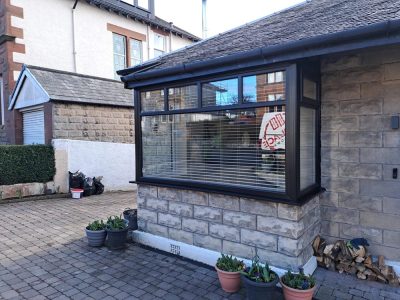
Mobile homes have become an increasingly popular housing option, especially because they offer flexibility and are quite affordable.
However, the limited space often poses challenges for owners wanting to embrace sustainable living practices and cultivate their own gardens.
In this article, you’ll find some incredibly innovative ways to transform your mobile home life by incorporating sustainable gardening practices that can truly liven up your mobile home.
Sustainable Gardening Practices
Container Gardening
One of the most practical solutions for mobile home residents is container gardening. By utilizing containers, residents can overcome space constraints and cultivate a variety of plants, herbs, and vegetables.
Choose recycled or upcycled containers to align with sustainable practices. Ensure proper drainage by adding pebbles or broken terracotta pieces at the bottom of the containers to prevent waterlogging.
Container gardening not only allows for a diverse range of plants but also makes it easier to control soil quality and conserve water.
Composting for Nutrient-Rich Soil
Creating a composting system is a fundamental step toward sustainable gardening in a mobile home setting. Composting kitchen scraps, yard waste, and even certain paper products can generate nutrient-rich compost that serves as a natural fertilizer for plants.
Consider using a small, enclosed compost bin to manage the composting process efficiently. This practice reduces the need for chemical fertilizers and promotes the recycling of organic waste, contributing to a healthier ecosystem within the limited space.
Enhancing Soil Health with Topsoil
While using containers and composting are essential components of sustainable gardening, ensuring the quality of the soil is equally important. Many mobile home residents may face challenges with the existing soil conditions in their surroundings, and this is where buying quality topsoil can come in handy.
Consider sourcing organic, locally-sourced topsoil to supplement and improve the existing soil quality. Topsoil delivery services provide an efficient way to bring in nutrient-rich soil that improves the overall fertility of the garden.
This is a practical solution for those dealing with poor soil structure, ensuring that plants receive the necessary nutrients for healthy growth.
Remember to blend the delivered topsoil with your existing soil, as this will create a well-balanced and fertile foundation for your garden.
Rainwater Harvesting
Mobile home residents can also take advantage of rainwater harvesting systems to reduce dependence on municipal water sources. Installing rain barrels or other rainwater collection methods allows residents to store and utilize rainwater for watering their gardens.
This system will conserve water and reduce the environmental impact of water consumption.
Additionally, rainwater is naturally soft, making it an ideal choice for plant irrigation as opposed to the chlorinated and treated water from traditional sources.
Vertical Gardening
Maximizing vertical space is crucial when dealing with limited ground area so vertical gardening might be an ideal choice when it comes to mobile homes. This involves growing plants on vertical surfaces, such as walls or hanging structures.
Consider installing vertical planters or repurposing old pallets to create a vertical garden. This will add a unique aesthetic to the mobile home and help you optimize your space for cultivating a variety of plants.
Choose plants that are well-suited for vertical growth, such as strawberries, herbs, and certain flowering vines like pothos and philodendron.
Permaculture Design Principles
Permaculture, a design system that integrates human activities with natural ecosystems, can be applied effectively in mobile home gardening. Utilize permaculture principles such as companion planting, which involves planting mutually beneficial crops together.
For example planting nitrogen-fixing plants alongside vegetables enhances soil fertility naturally. Additionally, incorporating perennials and native plants promotes biodiversity, attracts beneficial insects, and reduces the need for constant replanting.
Organic Pest Control
Maintaining a garden in a mobile home setting requires vigilant pest control without resorting to harmful chemical pesticides. Implementing organic pest control methods, such as introducing beneficial insects like ladybugs or using neem oil, helps manage pests effectively while preserving the health of the ecosystem.
Companion planting, as mentioned earlier, can also play a role in deterring certain pests by creating a balanced and diverse environment that is less susceptible to infestations.
Mulching for Soil Health
Mulching is a simple yet effective technique to enhance topsoil health and retain soil moisture. Covering the soil around plants with organic mulch, such as wood chips, straw, or leaves, helps regulate temperature, suppress weeds, and prevent soil erosion.
Mulching also contributes to the overall health of the soil by promoting microbial activity and nutrient cycling. As a sustainable practice, mulching reduces the need for excessive watering and minimizes the use of synthetic weed killers.
Conclusion
Mobile home living may present unique challenges, but with thoughtful planning and sustainable practices, you can transform your living space into a thriving green haven.
By embracing container gardening, composting, rainwater harvesting, vertical gardening, and permaculture design principles, mobile home owners can cultivate gardens that improve the aesthetic appeal and contribute to the health of the topsoil and the overall well-being of the environment.
These sustainable practices not only benefit individual households but also contribute to a broader movement toward eco-friendly and resilient living in the face of environmental challenges.








